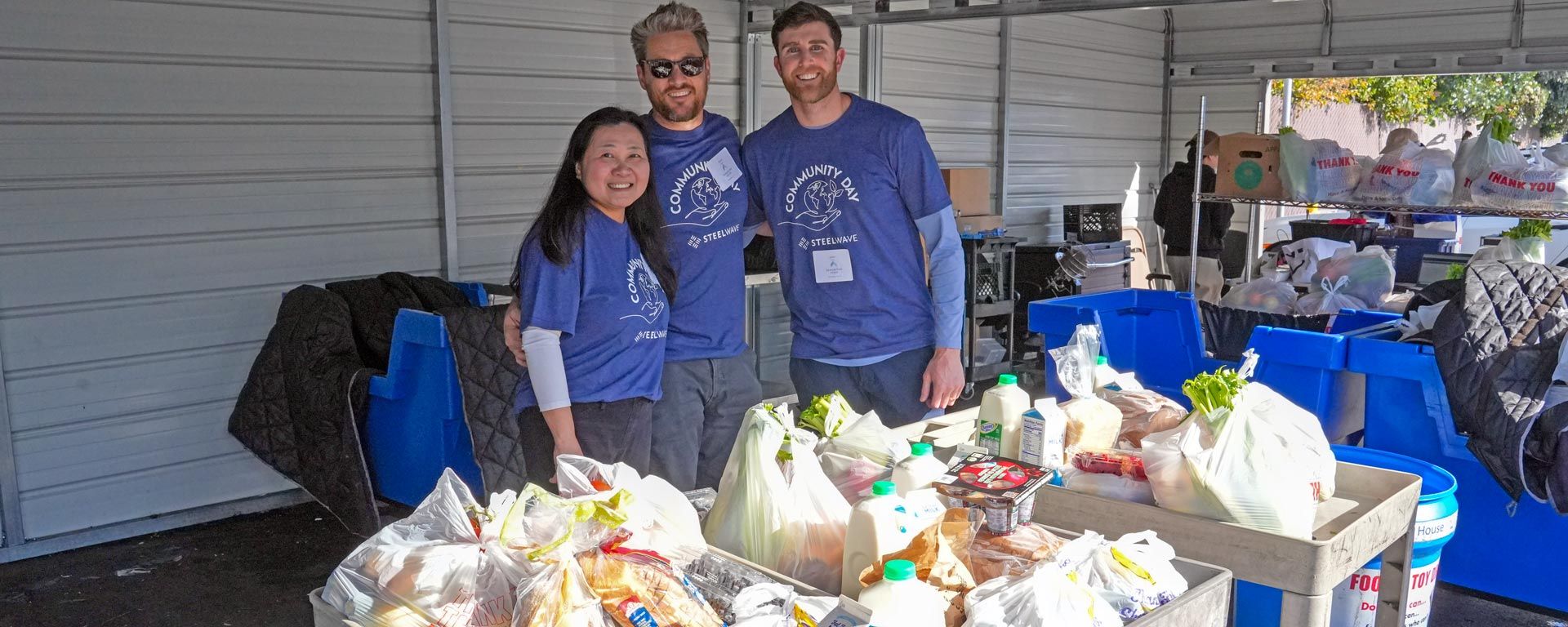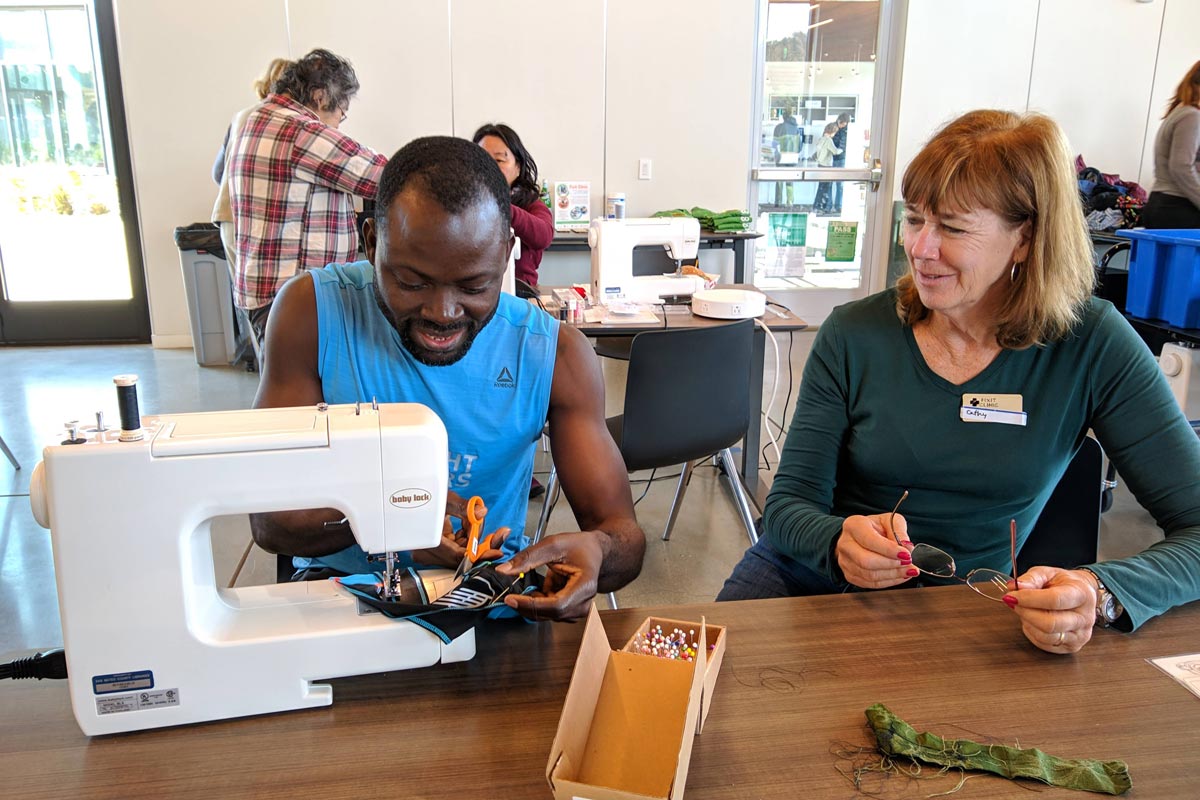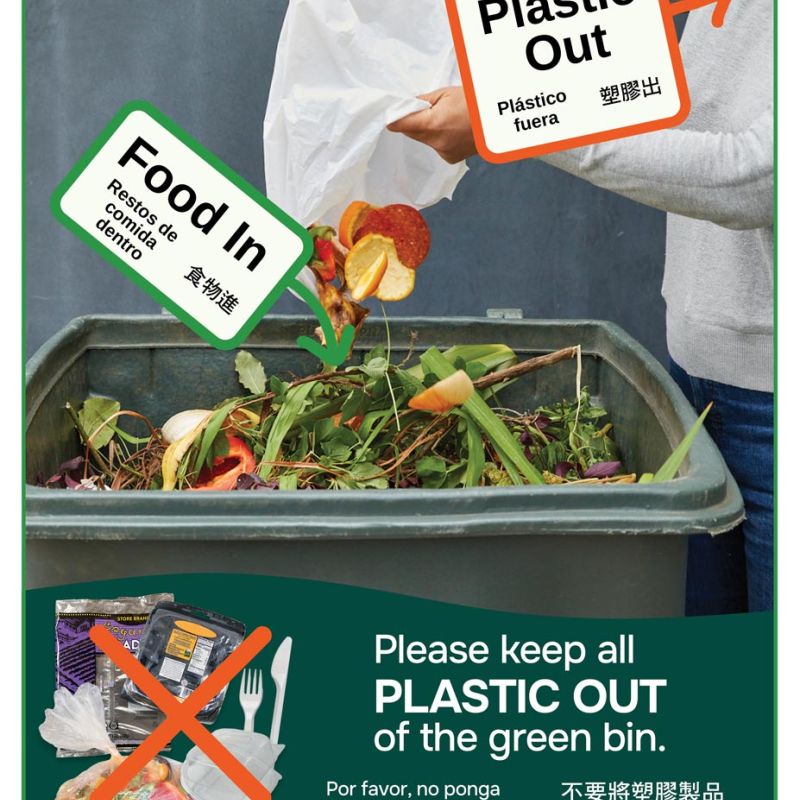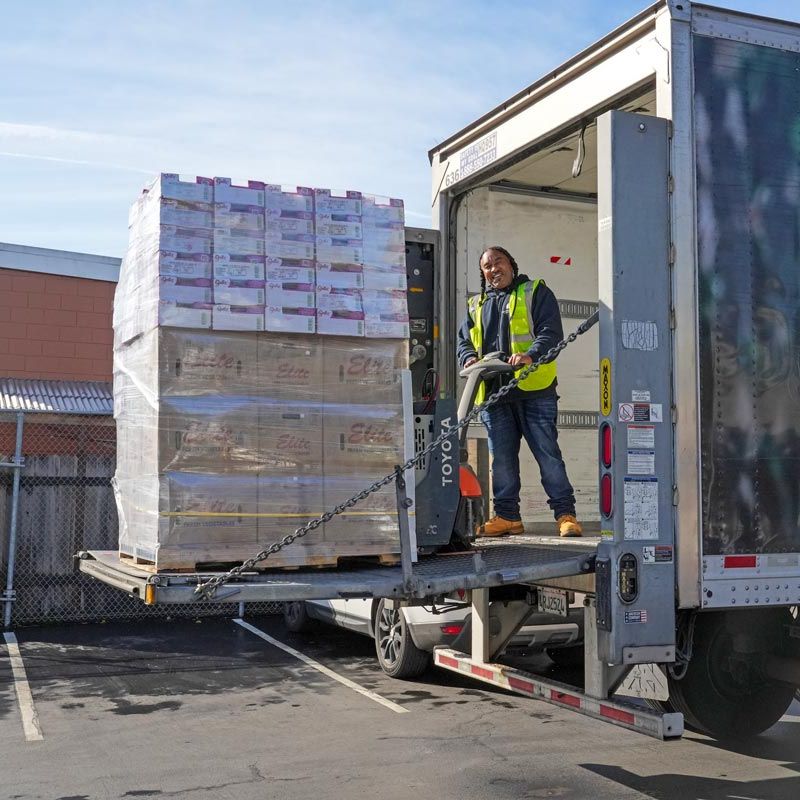
Requirements for Food Recovery Organizations and Services
State Law SB 1383’s Edible Food Recovery requirements and the San Mateo County Edible Food Recovery Ordinance both went into effect January 1, 2022. The requirements state that large, food-generating businesses must donate the maximum amount of their surplus edible food to a local food recovery organization or service. Food-generating businesses must establish contracts or written agreements with the food recovery organizations and services they work with to recover their surplus edible food.
Food recovery organizations and services are not required to work with regulated food-generating businesses, but if they do, they must comply with the following SB 1383 and local ordinances requirements:
Use a Compliant Contract: Edible Food Recovery Agreements must be based off of pre-approved templates. The Sustainability Department has developed two model templates for food recovery organizations to customize as they see fit. A downloadable 6-page template can be found here, and a simplified 2-page template can be found here.
Maintain Contact Information: Keep up-to-date contact info (name, address, and point of contact) for each donor your organization recovers surplus edible food from. Keep Records:
Track Total Pounds of Food Recovered: Food recovery organizations and services must maintain a record of the total pounds per month of food recovered from each organization they contract with. A template recordkeeping form can be found here.
Submit an Annual Report: Food recovery organizations and services must provide information about their operations to the County Sustainability Department, including the total amount of food they recovered during the previous calendar year.
Participate in Edible Food Recovery Capacity Planning: Every 5 years, organizations must provide the County with information about their edible food recovery capacity and infrastructure. This information helps the County understand the need for additional capacity for food recovery efforts.
If these requirements are too burdensome for your organization but you would still like to receive surplus edible food, your organization may partner with the following organizations:
This program connects nonprofits with supermarkets and grocery stores. Second Harvest of Silicon Valley Food Bank manages all contracting and reporting to the County on your organization’s behalf.
Peninsula Food Runners recovers food from businesses throughout San Mateo and Santa Clara County. No additional SB 1383 compliance steps are required to receive food from this organization. Organizations can sign up to be a surplus food recipient here.
Copia recovers surplus prepared food from across the Bay Area. Organizations can sign up to be a surplus food recipient here. No additional SB 1383 compliance steps are required to receive food from this organization. Organizations can sign up to be a surplus food recipient here.
Replate recovers surplus prepared food from across the Bay Area. Organizations can sign up to be a surplus food recipient here. No additional SB 1383 compliance steps are required to receive food from this organization. Organizations can sign up to be a surplus food recipient here.
Samaritan House operates a prepared food kitchen where they prepare thousands of meals each day. Samaritan House may be able to support partnerships to feed community member on a case-by-case basis. No additional SB 1383 compliance steps are required to receive food from this organization. Cost share may be required. Please email Reyna Sandoval at reyna@samaritanhousesanmateo.org with inquiries.
Loaves and Fishes operates a prepared food kitchen where they prepare thousands of meals each day. Loaves and Fishes may be able to support partnerships to feed community member on a case-by-case basis. No additional SB 1383 compliance steps are required to receive food from this organization. Cost share may be required. Please reach out to Lauren Compitello lauren@loavesandfishes.org with inquires.



